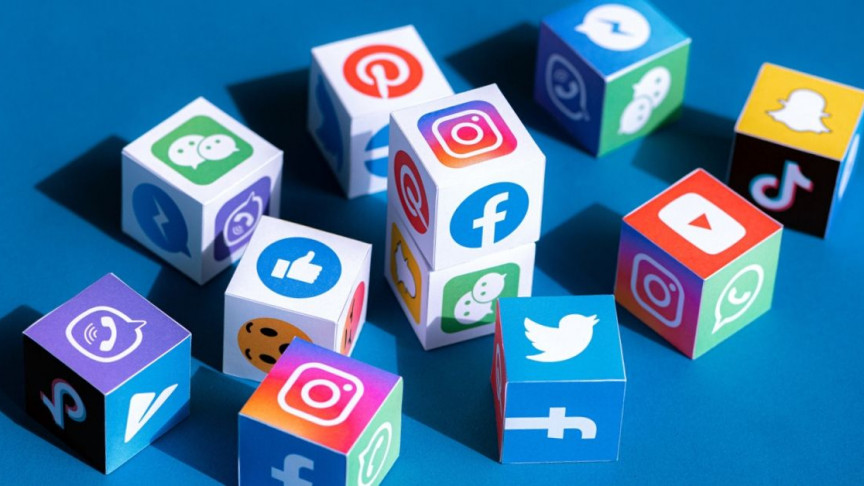Media and Pop Culture Influences
What comes to mind when you think about pop culture? Maybe it’s the influencer you’re following on Instagram, that new album everyone’s been raving about, or the latest fashion trend. Speaking of which, when are socks and sandals gonna be in? Just kidding! Honestly, it’s probably for the best anyway. What about the media? From social media to news outlets, there’s many ways we receive information about news and trends (whether economic or fashion). Nonetheless, media and pop culture are massive, everchanging influences over many aspects of our lives whether we like it or not. And we’ll be stuck with it for a very long time with the rapid rise of our Electronic Age.
Since prehistoric times, culture has ruled over many traditions and facets of life. Such can be seen from ancient cave paintings and ruins to the Renaissance. This can go to show how architecture, entertainment and art have been reflective of the times. For example, when we’re looking for entertainment, we probably aren’t gathering in Colosseums to watch gladiators attempt to fend off vicious predators for our own amusement. Streaming services such as Netflix and Disney Plus have helped us in that aspect. Although, watching them fight over viewership is like our own Colosseum of sorts. Especially with the COVID-19 pandemic going on, we see an increasing dependence on digital services, with everything from entertainment (admit it, you’ve had to have watched at least one cute cat video at some point) to basic necessities. As we undergo this pandemic, we’re seeing many different alterations to the way we traditionally receive entertainment. The switch to wireless streaming services from the traditional movie theater and DVDs is an example of this. As much as this can be a limitation, this fingertip access is a luxury compared to what people underwent in previous times, extending as far back to the Bubonic Plague and the Spanish Flu of 1918.
So kids, the lesson here is to wear those masks of yours, and please practice social distancing. To quarantine safely or not to quarantine safely. That shouldn’t be the question. It could be argued that many of Shakespeare’s topics and ideas from his famous plays remain relevant and continuously referenced today. How many times in the past year have you heard someone reference Romeo and Juliet? Macbeth? Hamlet? But even something like this is heavily dictated by the media, the news, and what the people we look up to choose to do.
The way the media presents information and news also dictates the way we react, process facts, and form opinions about them. Usually, we see bandwagoning come into play here, which can lead to the spread of misinformation and it contributes to overall toxic mindsets. This is a relatively recent phenomenon, thanks to rapidly evolving screen-based technology, that allows us to reach someone thousands of miles away— simply with the click of a button. Back before Gutenberg’s invention of the printing press, many commoners weren’t literate and got information through word of mouth, or even far after, books and newspapers were the primary source of news. It’s important to note that with these books or newspapers, the sources of information were more centralized and often binary. Fewer sources, fewer opinions. Right now, we don’t have a set centralized source of information — with all the various news channels, newspapers, magazines, and most importantly the internet, almost everyone can be a presenter. So, we find ourselves receiving a heavy amount of our information from the internet or trusted friends that get their info from the internet.
Having a variety of news outlets can be an upside— it provides us with new outlooks, perspectives, and information that we may not have received otherwise and would thus prevent people from developing biases, perpetuating stereotypes, and spreading partially accurate information. However, on the opposite side of that coin, it can have its own pitfalls. Have you ever played a round of Telephone? This game, preferably played with many people, starts off when one person picks a random word or phrase. They whisper into one person’s ear, and then it gets passed through the line until the final product is completely distorted from what it was originally. Now, what does this have to do with anything? Well, in a way, this is pretty comparable to the way different sources receive how they spread it to a wider audience and how this audience interprets and spreads it so on. Through this process, information can get modified, sometimes due to assumptions, opinions, and more. It boils down to having variety but knowing what to trust and what is fact versus opinion.
In the end, it all comes down to you. What’s in store for the future of pop culture? How far are you willing to sort through the different news stories and increase your awareness? What do you choose to look at?
Srilakshiya Sudhakar (she/her) is currently a senior at Shaker High School. She is, for the most part, a contributing editor for the Bison Newspaper. Other...
(she/her/hers)
Priya Musuku is a junior at Shaker High School. This is her second year in The Bison, where she helps write and edit articles. She also...


